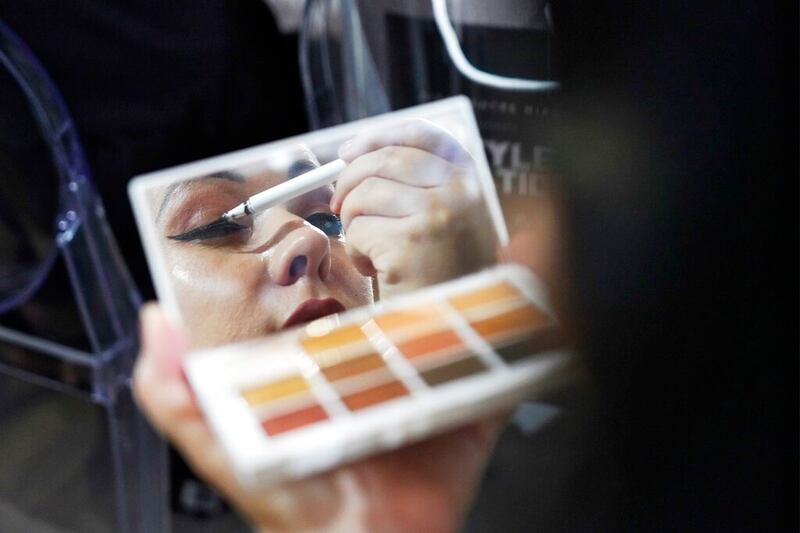“Not So Pretty” has a TV-14 rating.
The personal care and beauty industry hides ugly truths behind clean and artistic packaging, inviting scents and products that it claims can fix it all, according to a new documentary from HBO.
“Not So Pretty,” released on April 14, sheds light on the industry, revealing the ways in which it puts profits over people.
Renowned documentary directors Amy Ziering and Kirby Dick (“Allen v. Farrow”) tackle makeup, nails, skin and hair in hourlong episodes that use scientific evidence, personal stories and expert opinion to unravel the corruption in the beauty industry, which is valued at $700 billion in the United States alone.
Narrated by Keke Palmer, this series is “the first-ever comprehensive large-scale investigative expose of the trillion-dollar cosmetics, beauty and personal care industry,” the show’s description reads.
A review from The Hollywood Reporter described the show as not “the most artful nor the most moving — though it’s at least entertaining, artful and moving enough to keep a viewer engaged.”
What “Not So Pretty” does well is offer solutions that people can act on. It includes a do’s and don’ts list at the end of an episode telling viewers to avoid specific types of plastics, buy nail polish free of dangerous chemicals and to reach out to their congressional leaders about the “Safer Beauty Bill” Package.
Here are some tips from the documentary to get you started on your clean beauty journey.
In the details
Always do your research when it comes to buying products, whether it’s avoiding chemical-drenched nail polishes that don’t smell all that good or the shampoo that makes hair fall out in clumps.
The documentary uses the case of talcum-based products that contain asbestos, known for causing cancer.
Since many beauty products contain chemicals that pose a threat to humans, the documentary offers a list of apps — Skin Deep, Detox Me and Clearya — that people can use to make informed decisions.
All that waste!
Opening new boxes stuffed with bottles and tubes and jars full of beauty and personal hygiene products can be exciting, but it isn’t all that great for the environment.
Data featured in the show reveals that the cosmetic industry alone produces 120 billion packages each year, most of it ending up in landfills, even if the products are recyclable.
But there is momentum for change. Recycling platform TerraCycle, for one, is working with cosmetic brands like Bliss, Glow Recipe and Farmacy, as well as retailers like Nordstrom and Credo Beauty.
Some companies like Asuvi, Emma Lewisham, Hermès and L’Occitane offer refill options for their products.
Use your power and influence
The Food and Drug Administration requires all cosmetics to list their ingredients. The loophole? Formulas that are considered a “trade secret.”
A great example is products that contain “fragrance,” which could mean it contains any of the 4,000 chemicals used in scent products, per The Guardian.
This is where the “Safer Beauty Bill” package comes in, proposing a series of laws seeking to ban certain chemicals, like PFAS (a group of chemicals), phthalates and formaldehyde, while also requiring more ingredient transparency. It also aims to defend the health of women of color and salon workers.
The beauty industry is still far from getting “cleaner,” with the burden to change relying heavily on consumers for now, but that is power enough, said Ziering, the show’s director.
“We are not powerless, and where you put your money is where companies will follow your lead. They have to. So purchase wisely, and purchase thoughtfully.”


